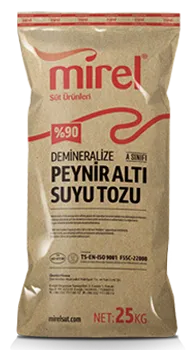For thousands of years, most people have consumed whey, especially as a healing drink. In addition to strengthening the immune system, it is also good for some ailments. It is seen as an elixir, especially in some parts of Asia and the Mediterranean Regions. In addition to its benefits, whey is also used as a preservative liquid for cheeses. This protective feature applies not only to cheese but also to meats and spicy foods. Whey powder is obtained by passing the whey through special processes. Whey, which is the main ingredient in the production of the powder; It is a liquid between green and yellow colors that is formed during cheese making from milk, during coagulation, that is, during curdling.
Whey Powder Nutritional Values
When the nutritional values of whey powder are examined, it is a supplementary food with a very dense content, especially in terms of protein. The proportions of nutritional values vary according to the production stages; The average values for 10 grams are as follows:
- Carbohydrate 7.35 g
- Protein 1.17g
- Fat 0.05g
- Cholesterol 0.3 mg
- Sodium 96.8 mg
- Potassium 228.9 mg
- Calcium 205.4 mg
- Vitamin A 5.9 mg
- Vitamin C 0.09 mg
- Iron 0.12 mg
The protein value of whey powder varies depending on the type of powder. There are generally 2 types of whey powder:
Isolated Whey Powder: It does not contain lactose, fat and calcium and consists of approximately 90% protein.
Concentrated Whey Powder: Containing 80% or less protein, this type also includes calcium, casein, lactose and fat.

